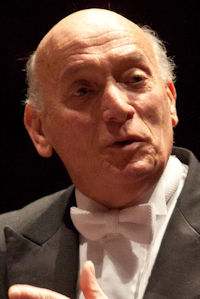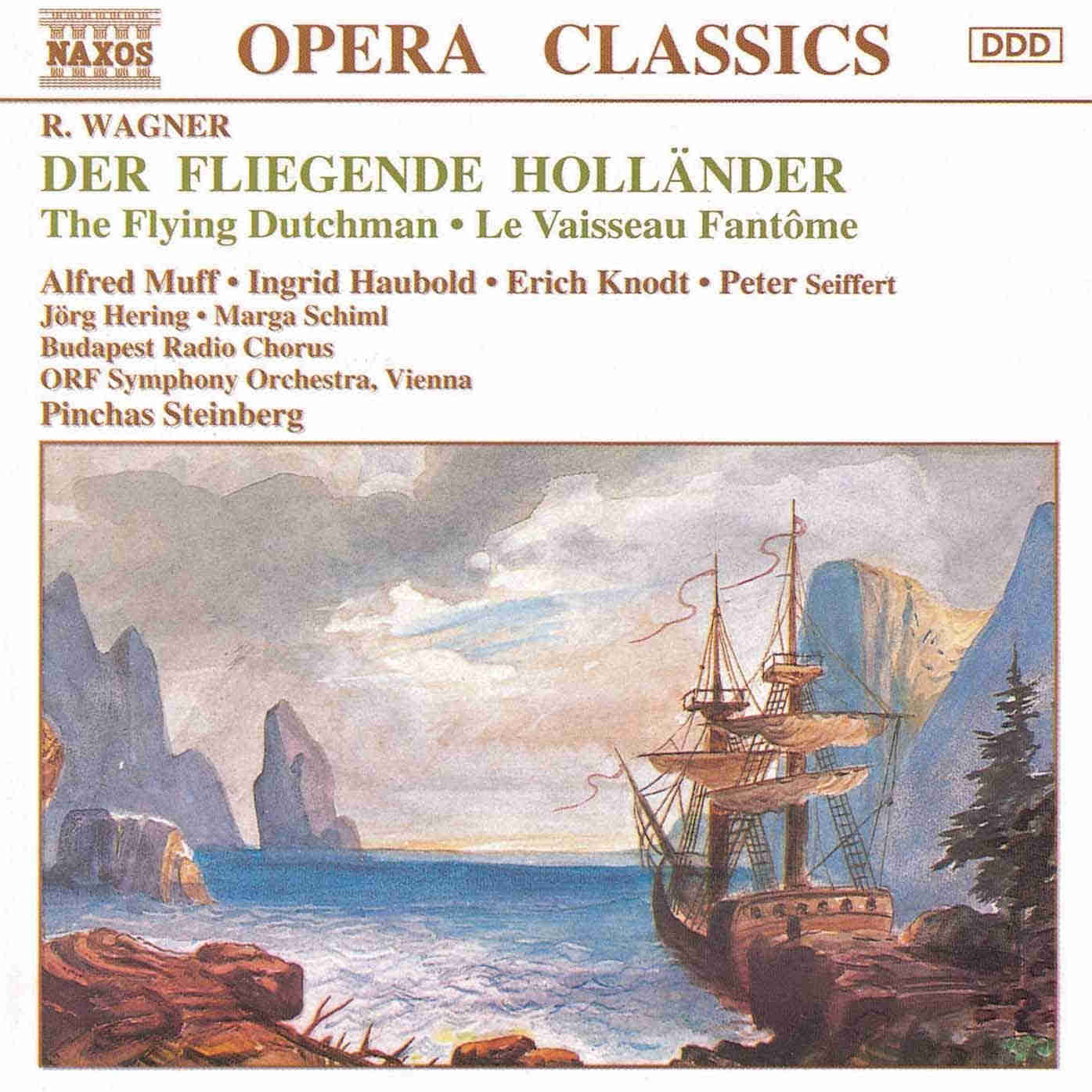Der fliegende Holländer

| Pinchas Steinberg | |||||
| Budapest Radio Chorus ORF Symphony Orchestra | ||||||
Date/Location
Recording Type
|
| Daland | Erich Knodt |
| Senta | Ingrid Haubold |
| Erik | Peter Seiffert |
| Mary | Marga Schiml |
| Der Steuermann Dalands | Jörg Hering |
| Der Holländer | Alfred Muff |
During the days when studio recordings of operas were common, the bargain-priced label Naxos made a number of fine sets using very good but not Abig name singers. The best of them were very well conducted and recorded and were not only well worth the bargain price but also competitive with more prestigious versions. With the availability of many Aname versions at bargain price today, the economic advantage is less of a factor, but they still have much to offer. This enjoyable version of The Flying Dutchman certainly falls into that category. The only prominent name in the cast is tenor Peter Seiffert as Erik, here at the beginning of his career which was soon to move into the heavier Wagner repertory. He sings the role with fresh, lyrical sound and a straightforward approach. Albert Muff (Dutchman) and Ingrid Haubold (Senta) were both prominent at major houses in Europe but did not record extensively, and they both offer strong interpretations of these demanding roles. The recorded sound and balance are excellent and conductor Pinchas Steinberg shapes the music excitingly and with authority. This is not the most luxuriously sung performance available but it is a thoroughly enjoyable listen.
The acclaimed series of Opera Classics from the budget label Naxos has now made its first foray into Wagner and scored a notable success. Pinchas Steinberg’s conducting of the overture to The Flying Dutchman has not only an apt salty tang, but also an incisiveness and dramatic momentum that stand him in good stead throughout the work. Incidental details emerge with unusual clarity, and he constantly finds room for a wonderfully expressive flexibility, heard at its best in the accompaniment to Erik’s first aria ‘Bleib, Senta!’. (Peter Seiffert, as the Erik, rises to the occasion with an impassioned, nicely shaped vocal line.) Steinberg again conducts with great intelligence in Erik’s narration of his dream, which is breathless with tense anxiety. Just occasionally the demonic element of the atmosphere seems to slip from his grasp, however, and the same has to be said of the Dutchman himself, Alfred Muff – though the latter’s is still a powerful, heroic delivery of the role. Ingrid Haubold’s Senta projects the requisite intensity of yearning, and the all-important visionary gleam is also present in her tone. The choral singing is admirably disciplined, though their refrain to Senta’s ghostly Ballad hardly suggests dramatic involvement: it could be a Brahms lullaby. Not an unqualified recommendation, then. But in spite of several notable assumptions of the title role (Hotter, Crass, Uhde and Bailey above all) there is still no ideal recording of the work. Accounts from Sinopoli and Dohnányi will be with us during 1994, but the new Naxos recording is likely to remain a strong contender at any price. As a budget release, it has no equal, and in spite of my reservations I cannot bring myself to accord it fewer than five stars.
Barry Millington



